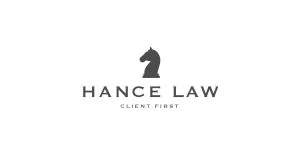According to the Cambridge Centre for Alternative Finance at the University of Cambridge Judge Business School, €5.4 billion were raised through national and international crowdfunding platforms in 2015 inside the European Union. Crowdfunding is developing on a stable trajectory in the Union and is now considered as the new trending financial instrument. But this quick evolution and growth raises questions and doubts both for project inventors and investors.
How is the actual European Crowdfunding Market?
The European Commission generally defines the crowdfunding as "an online marketplace to match investors and investees or lenders and borrowers". Crowdfunding was mentioned by the European Parliament in its resolution of 9 July 2015 on Building a Capital Markets Union stating that the "Capital Markets Union should create an appropriate regulatory environment for the companies looking for ... non-bank financing models, including crowdfunding...". It allows the discoverer to create a direct relationship with the funder.
In the European Union, figures show that even if crowdfunding is constantly growing, it still represents a small part of the financial market with operations confined at the national level. Although the cross-border activity and internationalisation of crowdfunding are still limited, crowdfunding is expanding all over Europe, and especially in France, UK, Germany and The Netherlands. As of today, UK is the leader in terms of volumes inside the EU. In France, equity crowdfunding and reward-based crowdfunding are dominant. Belgium is first for invoice-trading and Germany is leader for real-estate crowdfunding and donations-based crowdfunding. It is important to notice that there are still huge disparities between the European Member States, as for instance, if you divide the volume of the transaction of each European countries by its population, then UK is still the leader but France and Germany leave the podium and Estonia enters at the second place.
What are the potential risks of crowdfunding ?
Those who would like to start investing in projects via crowdfunding must be aware that potential risks may include investors not getting the returns they expected, a loss of capital, illicit activities performed by the platforms or even misinformation.
In response to those different risks, the European Commission created the so-called European Crowdfunding Stakeholder Forum (ECSF) which has the objective to "contribute to raising awareness, providing information and training modules for project owners, promoting transparency and exchange of best practice, and identifying issues that may need to be addressed in order for crowdfunding to flourish while taking into account the interest of contributors" (explanation given by the Commission). At the same time, some Member States are implementing "bespoke regimes" for crowdfunding, taking into account different european law obligations such as the European Consumer Law, KYC obligations, due diligence requirements, the Directive of Unfair Commercial Practices (Directive 2005/29/EC) or even the Anti-Money Laundering Directive (Directive 2015/849). What's more, some platforms must be authorised under the Directive on the Markets in Financial instruments to obtain a "passport" allowing them to perform financial services and financial activities through the European market. So by developing their bespoke regimes, European Member States try to secure any financial transactions occurring by crowdfunding and protect both parties. European law, Opinions from the European Parliament and Opinions from the European Commission are the best way offered to Member States to regulate crowdfunding activities inside the European Union and to allow platforms to thrive in a near future.
The next objective for the European institutions and the Member States should be to have an harmonization of the different crowdfunding european bespoke regimes in order to contribute to the sustainability of crowdfunding and its internationalization with cross-border activities.
Sources:
- European Commission working document on the Crowdfunding in the EU Capital Markets Union https://ec.europa.eu/info/system/files/crowdfunding-report-03052016_en.pdf
- Ethan Mollick's article for the Harvard Business Review "The Unique Value of Crowdfunding Is Not Money — It's Community" https://hbr.org/2016/04/the-unique-value-of-crowdfunding-is-not-money-its-community
- Alex Lui at Cambridge Insight Talk The EU CrowdFunding market
in a global context @Crowd Dialog EU 16
https://www.youtube.com/watch?v=kXS0jY2Uk1k
The content of this article is intended to provide a general guide to the subject matter. Specialist advice should be sought about your specific circumstances.

